标签:sys with .com tor mit poi str 直接 red
类型分析,个人理解就是(通过静态分析技术)分析出代码中,哪些地方只能是某种或某几种数据类型,这是一种约束。
?
例如,给定一个程序:
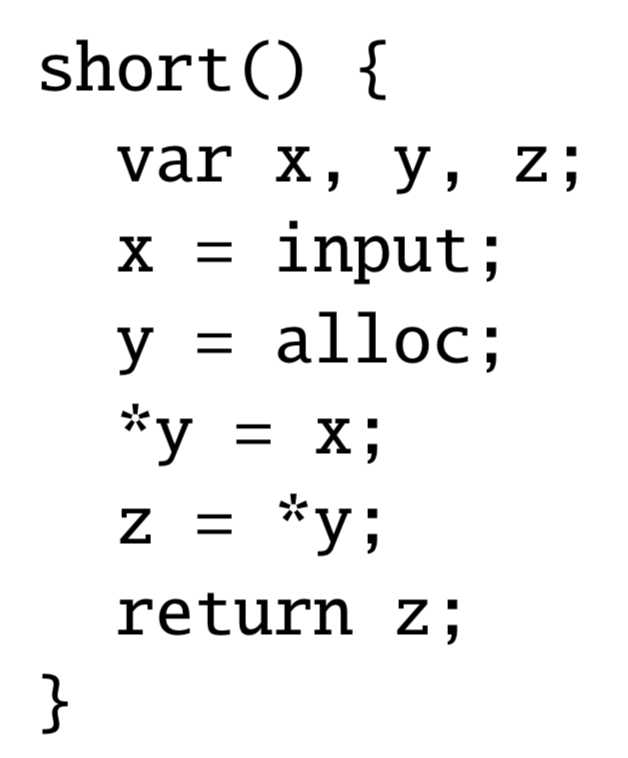
其中,我们可以很直接地得到一些约束:
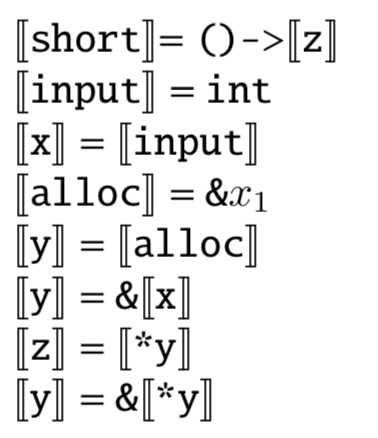
最后,经过简化可以得到:
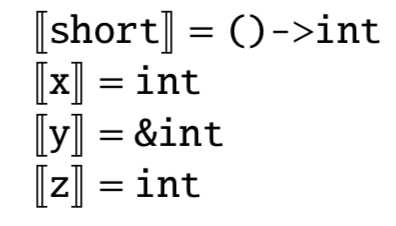
对于给定的变量类型,如果他们不符合这个约束,则说明,他们是不合法的。
那么,怎么去提取以及维护这些约束呢?
采用一种“并查集”的结构:一个有向图,每个节点有一条边指向父节点(父节点则指向自己)。如果两个节点具有相同的父节点,那么,这个两节点就认为是等价的,即含有相同的数据类型。
以下是并查集的基本算法:
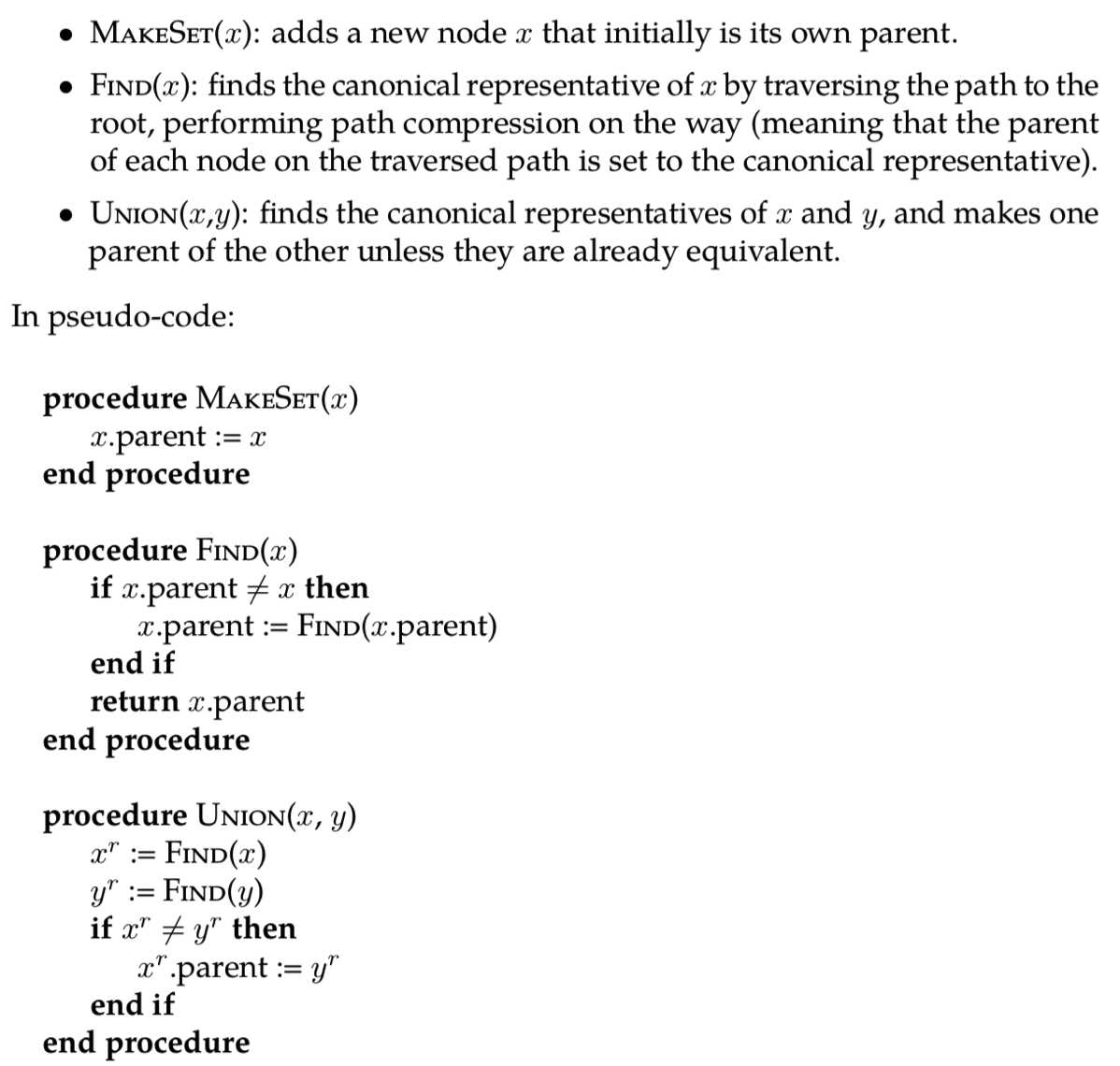
The unification algorithm uses union-find by associating a node with each term (including sub-terms) in the constraint system.
For each term τ we initially invoke MakeSet(τ ).
Note that each term at this point is either a type variable or a proper type (i.e. integer, heap pointer, or function); μ terms are only produced for presenting solutions to constraints, as explained below.
For each constraint τ1 = τ2 we invoke Unify(τ1, τ2), which unifies the two terms if possible and enforces the general term equality axiom by unifiying sub-terms recursively:?
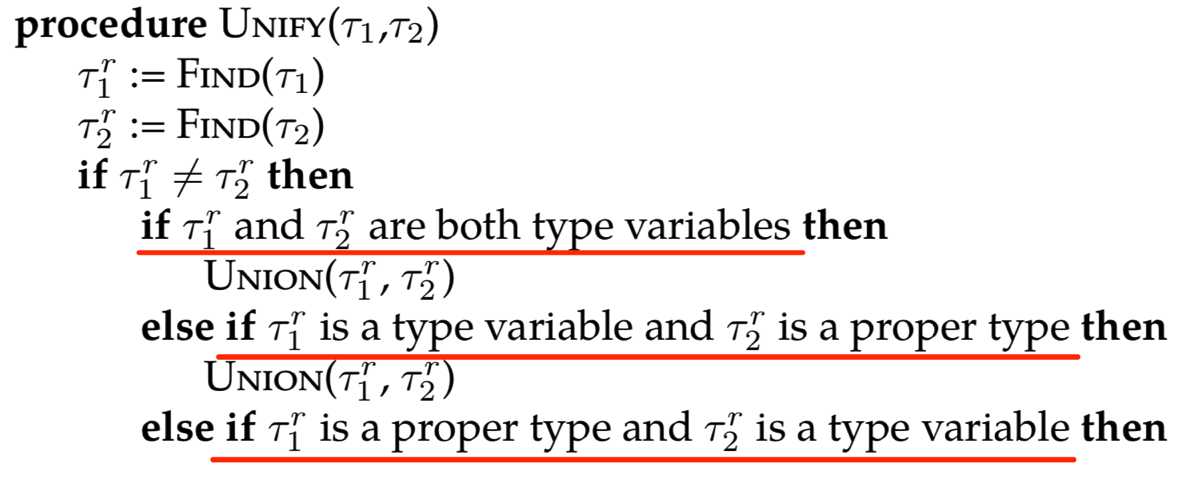
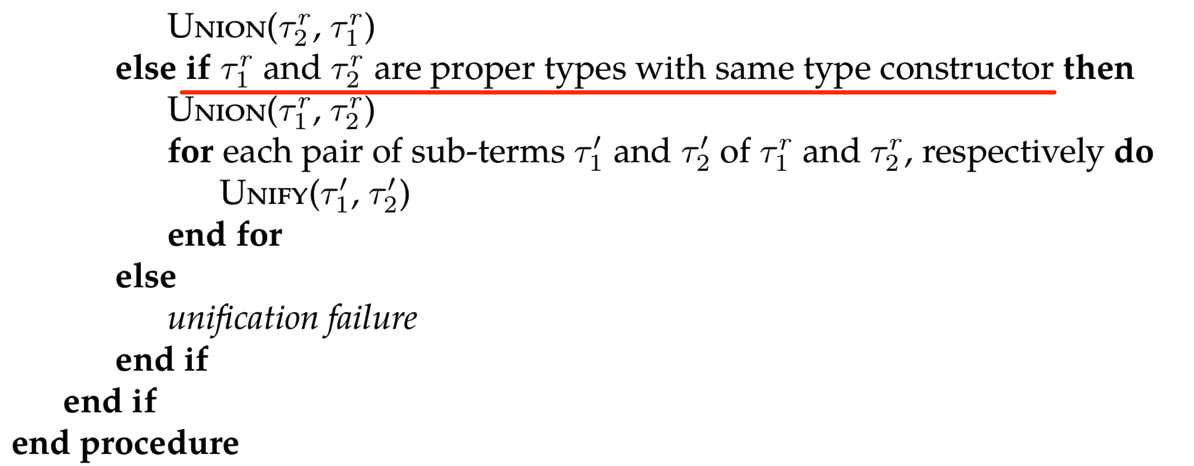
Unification fails if attempting to unify two terms with different constructor (where function constructors are considered different if they have different arity).?
再来看个例子:
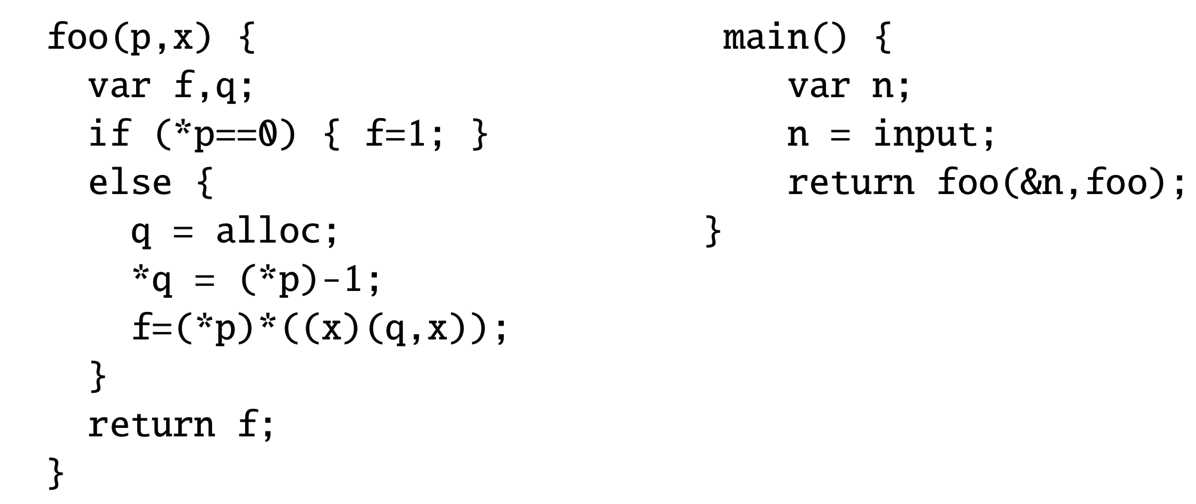
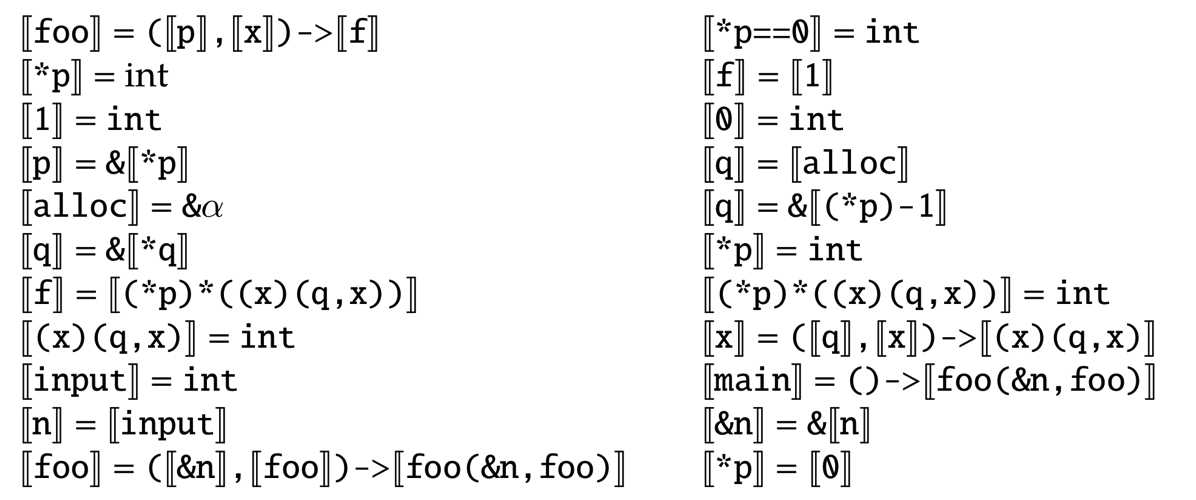
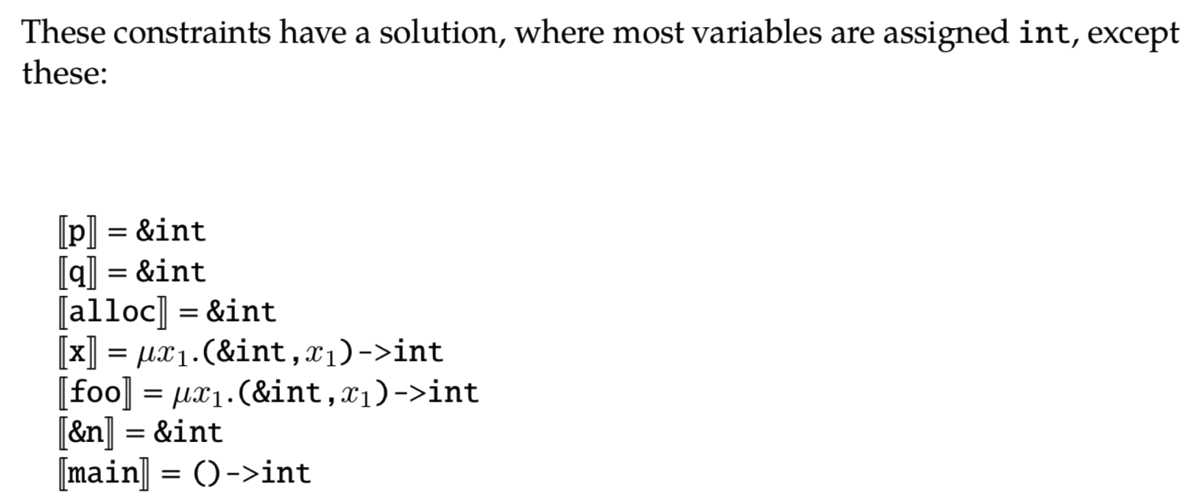
对于递归:
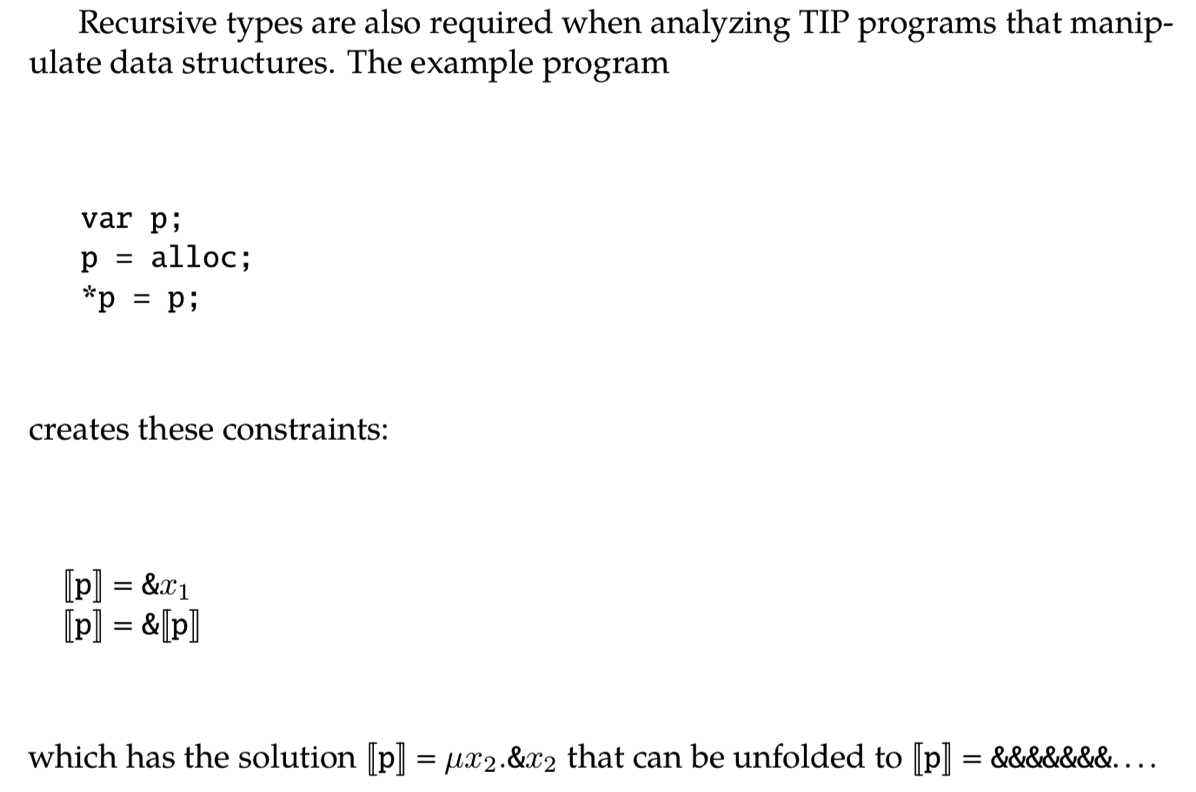
Limitations of the Type Analysis?
例子:
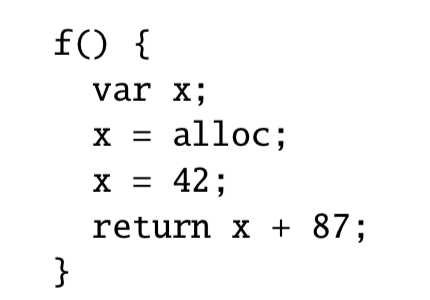 ?
?
运行的时候没问题,但是,遵循之前的方法会报错,之前的方法并不考虑程序的顺序执行给数据类型转换的影响。即X=42在X=alloc之后,因此,最终返回的一定是int型。
另一个例子:
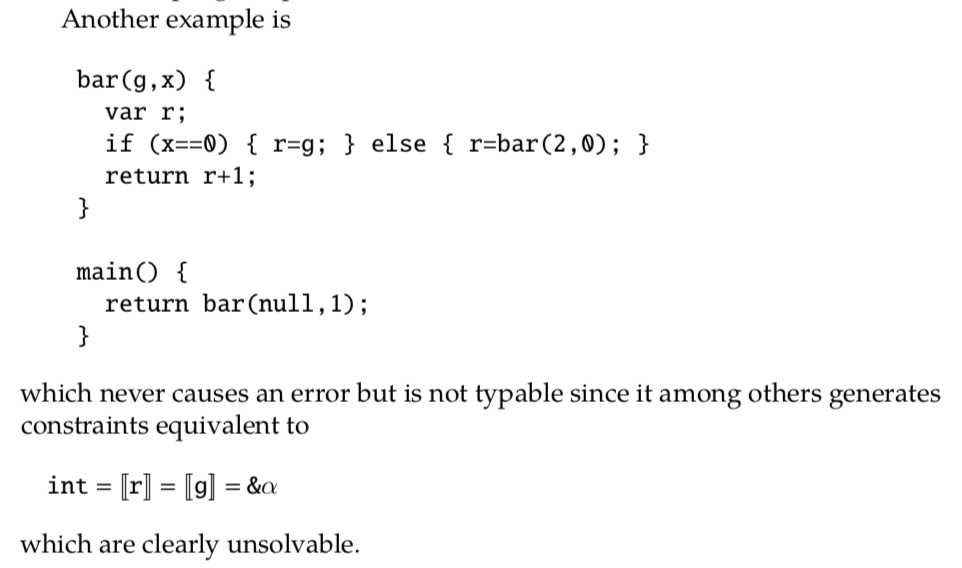
【Static Program Analysis - Chapter 3】Type Analysis
标签:sys with .com tor mit poi str 直接 red
原文地址:http://www.cnblogs.com/XBWer/p/7966406.html